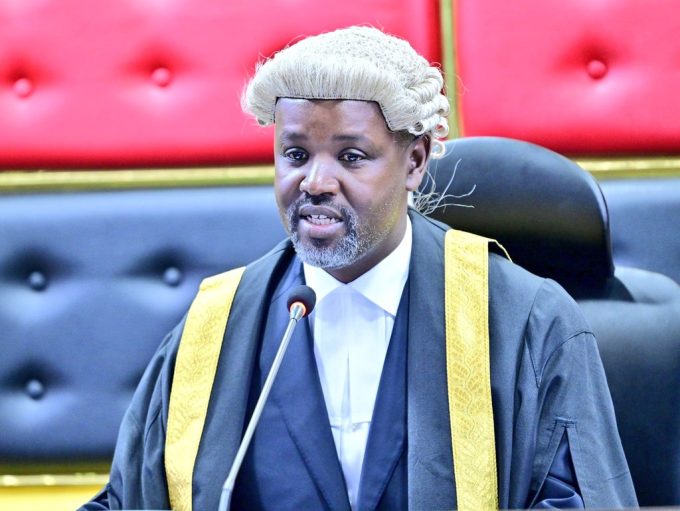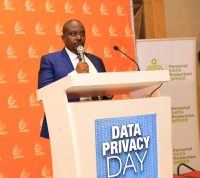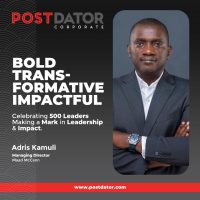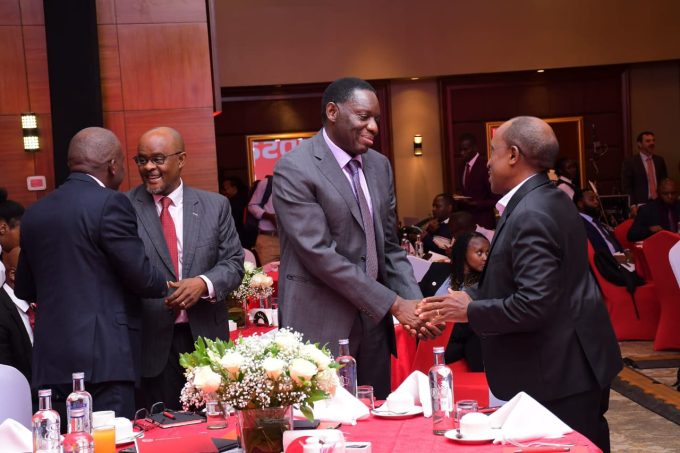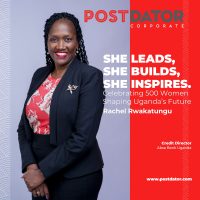Till death do us part, The “BUTS” in Business Partnerships: Critical tips – by Alex Matovu |#DMLive – PART ONE

DM: Welcome to Dickson Mushabe Live. In this episode of the Business Mirror I bring to you one gentleman whom I’ve seen grow his law firm from just a small law firm to one of the best in Uganda. They’ve won awards, they’ve won accolades in Africa but the most thing I want us to talk about today is partnerships.
If you’re new to this channel, please subscribe, hit the bell button and just await for much more that is going to come your way.
Now, myself, my story; I lost three companies because of partnerships. So if you are about to start a company or you’re thinking of starting a company, or you’re in one, there is a lot for you to learn today. Just stay tuned and let’s go through partnerships.
With me to discuss business partnerships is none other than the leadership and strategy partner, Signum Advocates, Mr. Alex Matovu. Alex, you’re welcome to the show.
AM: Thank you, Dickson.
DM: How are you?
AM: Thank you very much. I am well. I am glad to have the opportunity to share on the Business Mirror. An idea that of course you’ve shared with me and seeing it start off reminds me of the days when we started the business that we are running. So I’m glad to be here.
DM: Just a brief about yourself and the firm and generally so that we get to know who Alex is and what you are doing at the firm, and basically so that we get to understand what you do.
AM: Thanks, Dickson. My name is Alex Matovu as has already been mentioned. I am a lawyer by profession but I’m also very passionate about human capital development. I know that human resource, or people are organizations’ or companies’ greatest resource. So I’m very keen on personal development, management and leadership and growth. And, that’s why I’m the leader of strategic growth and management here at Signum.
I’ve also worked elsewhere before. It wasn’t that when I left school I immediately started a business. [00:02:00] I have a background of having worked in another law firm. I’ve actually worked with an accounting firm. I’ve worked with a law firm before I came to start Signum. So, I have an understanding of what it means to be employed. I have an understanding of what it means to be employed and to have no idea about how to run a business. Seeing what has happened now, I think To pick it’s a story that is worth sharing. To pick a few things here and there especially when it comes to doing business with other people. So, that’s my background.
DM: I’d like us to delve right into partnerships. You’ve mentioned that you’ve worked in companies before which had partners. You came and formed Signum Advocates with your partners. Many businesses have failed. Myself, I’m an example. Three have failed because we didn’t agree with my partners. We had different expectations. It just didn’t work out. How and why partnerships?
AM: For me, let me start with my story before I even get to tell you why I think partnerships are necessary. I left school at about 20, 22, 23 years. I decided that it would be necessary to go and practise law. Of course, I’d started working with a law firm in my first year, that’s 2006. That’s when I first worked in a law firm. Of course not doing legal work as such. But just getting that training and apprenticeship that I managed to get while at the law firm where I worked.
Interestingly, I think that while at that law firm, I was never taught about how to run a law firm. Yes, I observed things from a distance but I did not get to be intentionally mentored or deliberately mentored to understand how to run a partnership. And yet it was a partnership.
For law firms in most cases, they will start as sole proprietorships or they’ll start as partners. Two partners, three partners and even more. Across the world there are firms that have over, you know almost 1,000 lawyers across the world. [00:04:00] And these are groups that have opened across the world.
I remember in 2011 when I finished my bar course, I worked I think for about two years. I was dealing with, or working with gentlemen who were in different law firms but they were my friends. We had a group of five gentlemen and we still have the group. Essentially, we would invite people to come and speak with us that we thought were successful at it, and in two years time one of us thought: I think this is something that we can start. So, he comes to me, or to us as a group and says: I want to start this law firm. Of course we still have that fear. We are young. By then I think I was 26, he was 27. That was the age group of the group that we had. It wasn’t really to us something that would be a possibility.
I remember asking him and said: Yes we are thinking of starting a law firm. But, are you sure we will succeed?
He told me: You know what, what you’re asking me, what you’re saying is what many people are asking. I’m looking for one person who will ask me: What if we succeed? Because I’ve had everyone ask what if we fail.
For me that hit me hard. I remember 2013, yes I had the idea but I don’t think I was very resolute in saying let it start in 2014. But, with that statement and that question it left such a deep conviction inside of me to say, wait a minute. There’s a lot that I have seen that is different. Maybe when we talk about why we should even start a business and the vision in the first place. For me, there were so many things that I noticed that were wrong. Unethical practice, unprofessionalism in the way we handled clients and all these things. I kept asking myself when would this change.
Deep inside me I knew I that I have to be the change that I want to see. I just didn’t think it would happen at that point.
I remember going to my mother in 2013 and telling her: You know what, I’m going to start a business. She says two things. She told me: One, I think you’re so young. You’re really really young. You can’t start at this age. Two, if you’re to start, You’ve got to start it alone.
DM: That was 26 years?
AM: [00:06:00] Actually, I was 25. So she says if you’re to start, you’ve got to start it alone. I went on to ask: Why would you say that? She told me: You know that you lost your dad. (I lost my dad when I was four years in 1992. He died in a motor accident. It was a very devastating experience).
My mother told me that: I’m not sure that your dad died a natural death. It must have been something to do with business relationships. Business partnerships, disagreements in business. She says that life is more important. Go it slowly. If you must start, do it alone.
Now that brings me to the reason why to start a partnership.
For me I liked those reasons that she gave. Of course she’s the most important influential person in my life. I had to respect her advice. Yes, I respected it but I respectfully disagreed with her.
Why? Because for me, success without a successor is failure. Any success that we talk about in one generation and we don’t get to see it moving to the next generation, for me is not true success. For me that really meant that it cannot be entirely about me. So, even if I’d started alone, I’d have to have people who have worked in the organization who later become my partners. Because, I want to see legacy.
In fact this firm was first named Legacy Advocates. We only failed to get the name. But the idea behind the minds of every partner that was there was to say: Look let’s start something that can exist beyond us. Up to today we still do that.
So, one, it’s the fact that it can exist without you. For me, that is very important especially for Uganda. If I ask you to list three to five businesses that have been around for the 30 years, and they are indigenous Ugandans, I’m sure you would find it hard to list them.
DM: You would struggle.
AM: Why? Because I think the mentality has been: If I start my thing, it is my thing. ‘Kantu Kange’. If I have to make some money, it is my money. That’s where many of those challenges would come from. We will get to talk about that. [00:08:00]
The most important thing is that one, it is something that should exist beyond you.Two, it is an opportunity to put together resources.
I remember we started the firm and our budget was about 50 Million back then. Trust me, none of us had 50 Million.
We were three partners at that time. Some of us went to our parents to borrow the money. Not to just get it for free, but to borrow the money. But even if we did, none of our parents would give us 50 Million at once. We had to gather. Alex, get from wherever you get from, your savings, wherever. Someone else borrow and we put the money together to start the firm.
For us, it was an opportunity to pool resources and as a result, this is where we are.
DM: I like where we are going. You know, I am a student of partnerships. I have suffered in partnerships. I’m enjoying the conversation so so much.
Challenges. Of course like everyone’s fears, there are challenges. What are those challenges that are likely to come up in a partnership and how maybe could we avoid them?
AM: It would be a lie for anyone to tell you that this is a smooth ride. I remember a time I mentioned… a lawyer asked me to meet with them to talk about partnerships. They had struggled or they were struggling and they said can we have a conversation?
We spoke for about an hour. As we were closing, I told her that: Look, what we do in our partnership is that all resources, all income, is firm income. What that means is that we have a firm account versus our individual accounts. There’s no money that goes to hit my individual account as a partner before it goes to the firm account. It’s the firm that pays me. Now, that’s not African; because it’s my business.
It’s like someone coming to your family and telling you that you’re earning all this money but it has to go through another account to come to yours. It doesn’t make any sense. In fact, this lady told me: You know what; I hear everything you’re saying but I don’t want you to tell me the ideal. That’s what we all want. Don’t tell me the ideal. Tell me the real thing. What do you do?
For me, that was very funny. In fact, when I came and told my partners, everyone laughed. Because we are used to it. Does that mean that we are naturally inclined [00:10:00] to do it that way? Of course not. I think it takes a high level of selflessness to handle the challenges and everything that I will talk about is really about that. We are surrendering our rights for the good of all of us and we shall ultimately have more rights.
[END OF PART ONE]https://postdator.com/new/till-death-do-us-part-the-buts-in-business-partnerships-critical-tips-by-alex-matovu-dmlive-part-two/
You too can share your story or journey. Send it to editor@postdator.com
Latest News
Uganda Deepens Market Confidence at Absa Africa Financial Markets Forum
Uganda’s financial markets were in focus today as policymakers, regulators and private...
EBO SACCO, Equity Bank Join Hands to Deepen Financial Inclusion
EBO SACCO has entered into a partnership with Equity Bank aimed at...
Uganda’s Financial System Remains Stable Despite Rising Global Risks – Bank of Uganda
Uganda’s financial system remained stable over the year to September 2025, supported...
URA Urges Taxpayers to Settle Monthly Taxes Ahead of Elections
Kampala, Uganda – The Uganda Revenue Authority (URA) has called on all...




